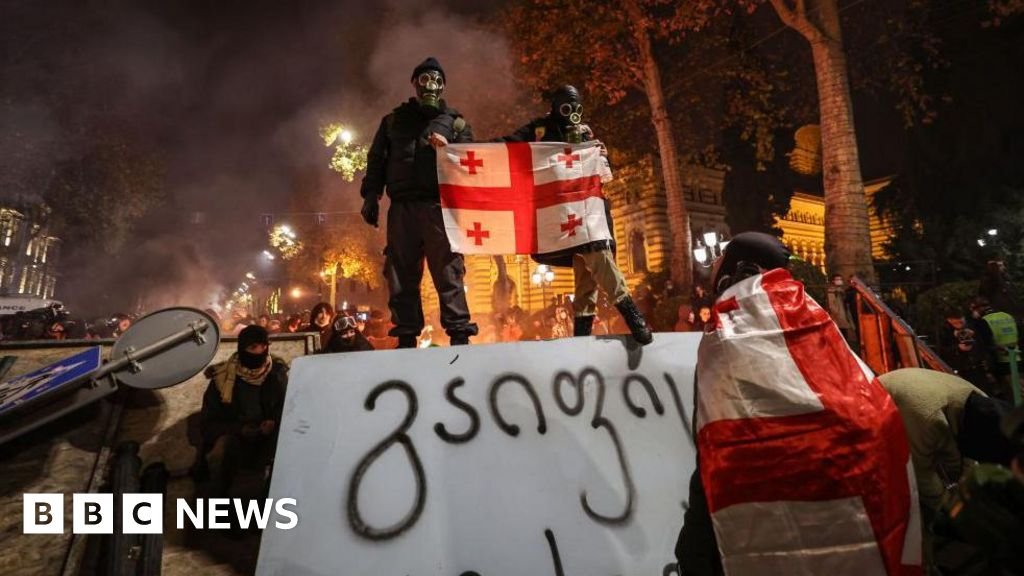Kabakhidze told the BBC’s Steve Rosenberg at a press conference that the Georgian Dream was still “committed to European integration… and we continue our journey towards the European dream”.
And yet a growing number of government officials don’t seem to believe that’s the case. Several ambassadors resigned, and hundreds of civil servants and 2,800 teachers signed letters condemning the decision to suspend EU membership.
Many Georgians were shocked by the level of violence against Georgian journalists as well as protesters. Dozens of reporters were beaten or sprayed with pepper spray, and some required hospital treatment.
Georgia’s human rights commissioner Levan Ioseliani said “this is brutality” and appealed to the police not to abuse their power. On Sunday, the prime minister said that “systemic violence” was committed by opposition groups, not the police.
Georgia’s ex-ambassador to the EU, Natalie Sabanadze, who now works at Chatham House in the UK, believes that the level of violence, a number of resignations and civil disobedience indicate a “qualitative change” in the protests taking place now.
“Maybe (the government) thought people would be scared, but it doesn’t work that way,” she told the BBC. “Yesterday, civil society activists and artists went to the public broadcaster, hijacked it and broke into the live broadcast. I saw it before, in pre-revolutionary Georgia (in 2003).”
Georgia’s pro-Western president, Salome Zurabishvili, is due to step down in a few weeks, but has emerged as a powerful figure after last month’s parliamentary election, which opposition parties denounced as rigged, rallying anti-government protesters and calling for a new vote.

